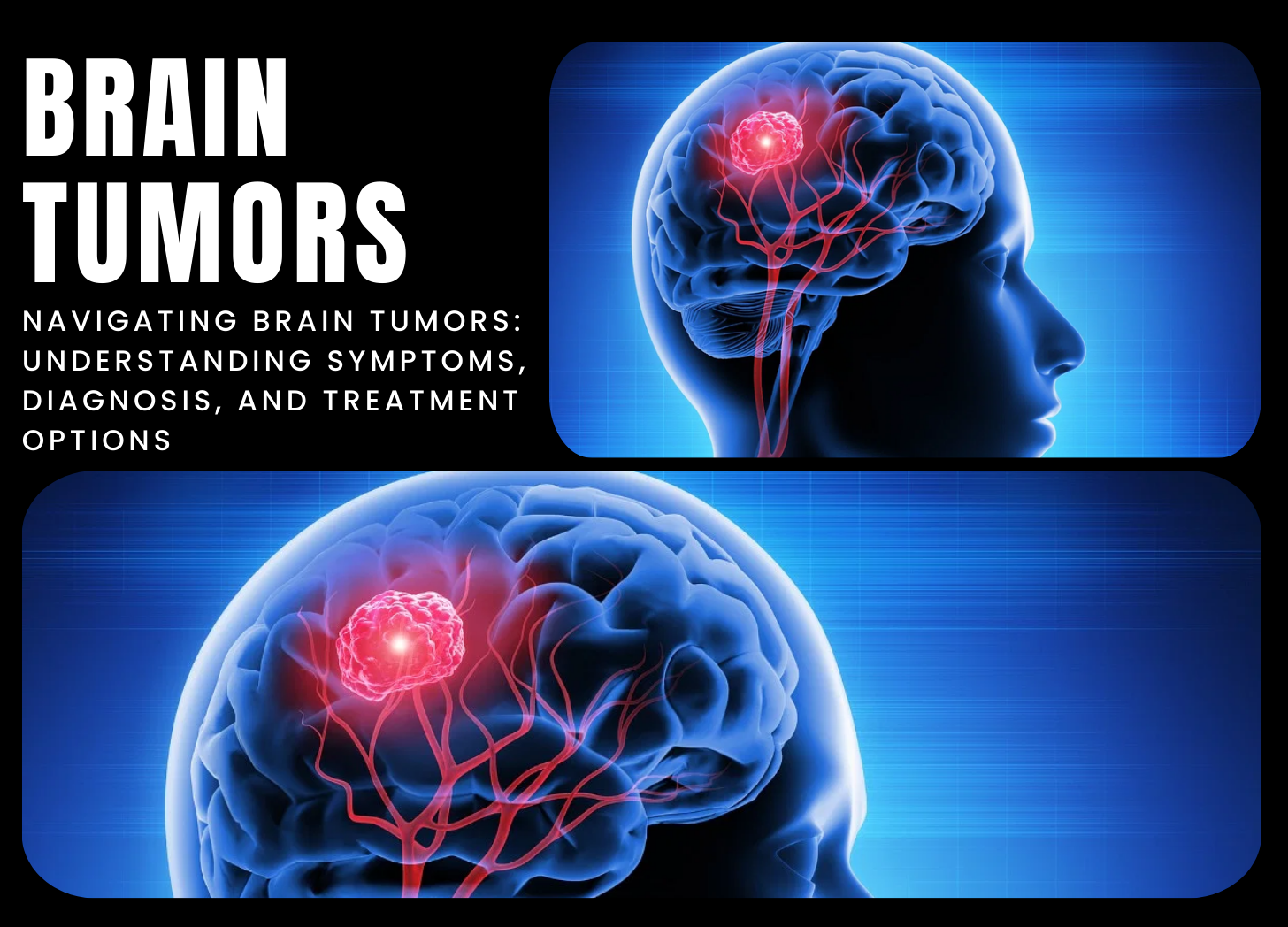Contact Us
Contact Us

Brain tumors are abnormal growths or cell masses that form within the brain or its surrounding tissues. These tumors can be benign (noncancerous) or malignant (cancerous), and they can develop from a variety of brain cells, including glial cells (such as astrocytes, oligodendrocytes, and ependymal cells) and neurons. Brain tumors can vary in size, location, and aggressiveness, resulting in a variety of symptoms based on their size and location inside the brain.
The actual etiology of brain tumors is frequently unknown, although some risk factors may increase the likelihood of getting them. Exposure to ionizing radiation (such as from previous radiation therapy to the head or neck), certain genetic syndromes (such as neurofibromatosis, Li-Fraumeni syndrome, or tuberous sclerosis), a family history of brain tumors, or immune system disorders (such as HIV/AIDS or immunosuppression) are all potential risk factors. However, in many cases, brain tumors develop spontaneously and without any identified risk factors.
Brain tumor symptoms vary according to the tumor’s size, location, and rate of growth. Common symptoms include headaches (which can be severe or worsen over time), seizures, changes in vision, hearing, or speech, limb weakness or numbness, balance issues or difficulty walking, cognitive changes (such as memory loss, confusion, or personality changes), nausea or vomiting, and mood or behavior changes. Brain tumor symptoms can develop gradually or rapidly, depending on the nature and location of the tumor.
Brain tumors are often diagnosed using a combination of medical history, physical examination, neurological assessment, and imaging techniques (such as an MRI, CT scan, or PET scan) that visualize the tumor and assess its size, location, and features. A biopsy may also be used to obtain a sample of tumor tissue for laboratory investigation and determination of kind and grade. Genetic testing and molecular analysis can be used to discover specific genetic mutations or chromosomal abnormalities linked to certain forms of brain cancers.
Treatment for brain tumors is determined by a variety of criteria, including the tumor’s kind, size, location, and grade, as well as the patient’s overall health and preferences. Surgery to remove the tumor (partial or whole), radiation therapy, chemotherapy, targeted therapy, immunotherapy, or a combination of these treatments are all possible possibilities. The goal of treatment is to remove or shrink the tumor, ease symptoms, preserve neurological function, and improve the quality of life for people with brain tumors.
To summarize, brain tumors are abnormal growths or masses of cells that form inside the brain or its surrounding tissues, impairing neurological function and generating a variety of symptoms. Early detection, correct diagnosis, and appropriate care are critical for optimizing outcomes and increasing survival rates for people affected by brain tumors. Healthcare providers and communities may help people affected by brain tumors by raising awareness about the signs and symptoms and supporting access to appropriate medical care and treatment alternatives.
References:
1.American Brain Tumor Association. (2022). Types of Brain Tumors. Retrieved from https://www.abta.org/tumor_types/
2.National Cancer Institute. (2022). Brain Cancer–Patient Version. Retrieved from https://www.cancer.gov/types/brain
Post a Comment